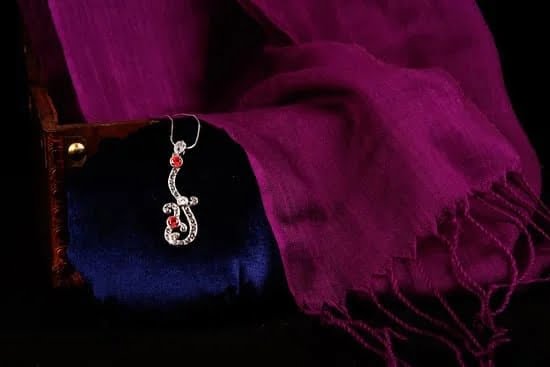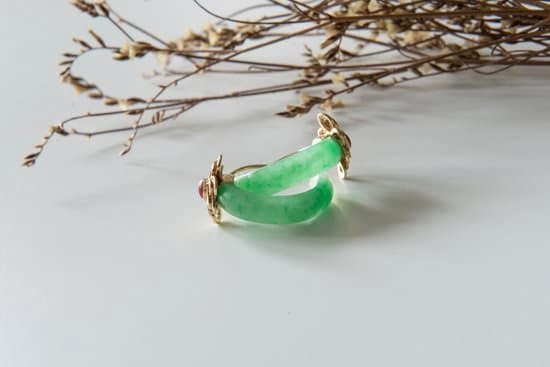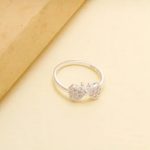Lemon juice has long been a popular ingredient for cleaning platinum jewelry as it works to safely and effectively remove dirt, grime, and oils that accumulate on the metal over time. Utilizing lemon juice’s natural cleansing power is non-abrasive and easy to use, requiring minimal items and short amount of time. It is also one of the least expensive options on the market while still being effective in removing tarnish.
How to Clean Platinum Jewelry Using Lemon Juice
Cleaning platinum jewelry with lemon juice is a simple process that requires few items and less than 10 minutes of your time. Begin by gathering together a small bowl, lemon juice, baking soda, soft toothbrush/cloth, water and cotton swabs.
Start by squeezing out fresh lemon juice into a bowl until it covers the jewelry that you intend to clean. Then add enough baking soda to form a thick paste-like consistency; about ¼ teaspoon for every tablespoon of lemon juice should suffice.
Use a soft toothbrush or cloth covered fingers to apply the mixture over the jewelry. Let sit in the solution for 5 minutes before rinsing off with cool water. For hard to reach places use cotton swabs dipped in the solution for detailed cleaning purposes. Once your platinum jewelry is dry it should appear much brighter and shinier than before.
Conclusion – Lemon Juice Is an Effective Way To Clean Platinum Jewelry
In conclusion, cleaning platinum jewelry with lemon juice can be beneficial as it not only safely cleans dirt, grime and oils off of the metal but also restores original luster at a fraction of the cost when compared to store bought chemical cleaners or prepared solutions on the market today. The short amount of time required coupled with its cost effective nature make lemon juice an excellent choice for cleaning your prized possession.
Benefits of Lemon Juice
Lemon juice is a natural antiseptic and antibacterial, making it an ideal cleaner for platinum jewelry. Platinum jewelry can become tarnished and dingy with everyday wear due to contact with the environment. Lemon juice is great at dissolving dirt and breaking up greasy residues which accumulate on jewelry. The acidic properties of lemon also effectively remove skin secretions, smoke, as well as air pollutants that build up on platinum surfaces.
Using lemon juice is an easy and effective way to keep your platinum jewelry looking new. To clean your jewelry, start by mixing one part of lemon juice with two parts of water in a small bowl.
Place the platinum pieces in the solution and let them sit for about 10 minutes or until the dirt has been dissolved. Afterward rinse well in warm tap water, dry with a soft cloth and polish using a polishing cloth specially designed for platinum.
When using lemon juice for cleaning your silicone masks, always be sure to rinse thoroughly with running water afterwards to avoid skin irritation due its acidic properties. If you don’t want to use lemon juice you can find milder alternatives like baking soda or mild detergents specially designed for use on metals without causing scratches or damage.
When cleaning silver it works best not to use chemical cleaners as they can cause discoloration over time so stick to these types of solutions that are safer than chemical-based products that can cause harm when used incorrectly. With regular maintenance, you can guarantee your platinum jewels complete protection from dirt, grime and environmental damage while keeping them looking their absolute best.
Comparison to Chemical Cleaners
Lemon juice can often be a great option when looking to clean platinum jewelry, especially in comparison with chemical cleaners. Lemon juice is made up of citric acid which has been found to be an effective cleanser due to its pH level which is much lower than that of water or even soap.
It is important to remember, however, that while lemon juice is a very gentle form of cleaner, it should still be used in moderation as overly vigorous scrubbing and harsher mixtures could damage the delicate pieces of platinum jewelry.
Using lemon juice to clean platinum jewelry can often leave it looking as good as new and sparkling with a brilliant color and shine. The acidic properties of the citrus do a great job at removing dirt particles that accumulate on the surfaces over time, without leaving behind any residue like other solutions may. It will not harm any delicate inscriptions or engravings and can restore some tarnish on certain pieces very effectively.
The amount of lemon juice you use also plays an important role in keeping your platinum jewelry safe during cleaning. Too much citrus in the mixture could lead to corrosion over time, especially if left on for too long.
One way to avoid this is by mixing equal parts of lemon juice and water together before using it on the items you are trying to clean. This not only reduces the possibility of corrosion but speeds up the whole process as well so you’ll find your valuable pieces come out brighter and shinier in less time than with other solutions such as ammonia-based products.
How to Clean Platinum Jewelry with Lemon Juice
Platinum jewelry is an exquisite and expensive type of jewelry, made to last a lifetime. To keep in top condition, it is essential to know how to clean platinum jewelry properly. One method which is known to provide excellent results with minimal effort involved is using lemon juice. This natural ingredient has powerful cleansing properties that work safely on platinum without damaging the metal like other harsh chemicals or abrasives could.
The process for cleaning any platinum jewelry using lemon juice requires only a few simple steps. Firstly, place the item into a container filled with warm water mixed with a few drops of lemon juice. Allow the piece to soak for around fifteen minutes as this will soften dirt and make it easier to remove from the crevices within its design.
Afterwards, take out the piece from the liquid and use a soft cloth or brush to gently scrub away any embedded dirt on its surface. Finally, rinse off any residue left behind in cold clean water before drying off the jewelry in a clean lint-free towel, taking care not to scratch its surface while doing so.
I recommend wearing gloves during this process as contact with lemon juice could irritate sensitive skin due to its acidic content. Additionally, just be sure not to leave your pieces submerged too long as this might cause damage because of oxidation or discoloration when exposed to air afterward.
All in all though, if you follow these guidelines routinely on your precious platinum pieces this should provide you with excellent results each time and ensure your jewelry remains looking pristine for years or even decades yet.
Tips and Tricks
When it comes to cleaning platinum jewelry, most people don’t think to use lemon juice. However, lemon juice can be a great and inexpensive agent for cleaning precious metals such as platinum. Before using lemon juice on your jewelry it’s important to know the basics on how to properly clean with it.
To begin with, you should create a mixture of ½ cup of warm water and 2 teaspoons of lemon juice. Preparing this mixture is simple and only requires mixing both ingredients together in a small bowl or container.
A soft cloth should then be dampened with this liquid and lightly wrung out until completely damp. The cleaning process involves rubbing the damp cloth against the piece of jewelry that needs cleaning in small circular movements until the dirt begins to come off onto the cloth.
The next step when cleaning platinum jewelry with lemon juice is rinsing off any remnants of dirt and lemon residue that may remain after wiping surfaces down with the damp cloth. Use a same half cup measurement that was used before but fill it with warm water and use that to rinse away any dirt particles or residual liquids on the surfaces.
Thereafter, dry off all pieces of jewelry with another soft cloth removing any moisture remaining on each item by gently patting them dry one at a time instead of using an aggressive scrubbing action which could potentially cause scratches and various other scratches or damages.
Polishing can also be done to completely restore luster once all surfaces have been cleared from dirt particles. A polishing cloth made from microfiber specifically for this type of material should be used for proper polishing without risking damage being caused to items characterized by their delicate nature such as jewelry made from platinum, silver or gold materials.
This same technique can also be applied not just for everyday maintenance but on regular basis intervals in order to keep everything looking as shiny as new over time.
Potential Risks
Lemon juice is often touted as a good agent for cleaning platinum jewelry, but there are potential risks that come with its usage. The acidic pH of lemon juice makes it a great cleaning agent, however, it can also be too strong to use on certain types of jewelry.
Platinum jewelry is especially vulnerable to damage from lemon juice due to its delicate nature – over time, the acidity of the juice can in fact start to corrode or pit the metal. Furthermore, there are some stones set in platinum pieces that could potentially be negatively impacted by lemon juice as well.
Using lemon juice for cleaning requires careful consideration and awareness about the acid content of different varieties of lemons. The amount of acid present in each fruit varies based on climate and growing conditions; limes and sour oranges contain more citric acid than standard lemons and should therefore be avoided when using this method for platinum items.
If a piece needs more intense cleansing power, using a mild soap such as dishwashing liquid will ensure gentle yet thorough cleaning without any acidic residue that could damage your jewelry over time.
One way to ensure total safety for your precious platinum pieces is to consult a professional jeweler who specializes in cleaning platinum jewelry. They have years of experience and proper equipment needed to efficiently clean and polish everything from small trinkets up to grandly-scaled heirloom pieces without harming them in any way.
They use ultrasonic cleaners or chemical solutions specifically designed for safe use on delicate metals while removing all dirt and grime with precision – ensuring longevity with regards to its shine and splendor over time. In addition, they also inspect items thoroughly while they are cleaned so you can rest assured any worn or damaged parts gets addressed instantly before an even bigger problem arises down the line.
FAQs
Yes, lemon juice is safe to use on platinum jewelry. Platinum is an incredibly strong and durable metal that can handle harsh acidic solutions, like lemon juice. Surprisingly, the acidity in lemon juice won’t cause any damage to your precious platinum jewelry.
The gentle acid helps break down gunk and grime that build up on metals over time, making it perfect for cleaning delicate jewelry. It doesn’t involve any harsh chemicals like other jewelry cleaners, so you can be sure there are no harmful toxins left behind.
Simply drop your piece into a bowl of lemon juice and let it sit for a few minutes before giving it a gentle scrub with an old toothbrush or soft cloth. If your piece has gemstones or intricate details, make sure they stay dry while cleaning so they don’t get damaged from the solution.
Cleaning platinum jewelry with lemon juice isn’t just beneficial for the longevity of your pieces; it also has money-saving advantages too. Investing in expensive jewelers and solutions adds up quickly over time, so using natural solutions that you have at home can really save you cash in the long run.
When using fresh lemon juice to clean your platinum jewelry, be sure to use lukewarm water afterwards to give it a good rinse and get rid of any excess acidity from the citrus fruit. Dry off with a soft cloth or air dry thoroughly before wearing again to avoid any irritation on your skin from wet lemon residue.
This simple technique will help keep your gold jewelry looking as good as new without needing to use store-bought cleaners and procedures.
A great way to extend the life of your platinum jewelry is by adding regular topical polishes once every few months or whenever you notice tarnishing setting in. You can find specially formulated polishes specifically made for fine silverware-these should not be used on other types of metals (like gold or platinum) as they can cause discoloration and dullness over time.
Be sure always read labels carefully when purchasing polishes as some may contain abrasive particles that can cause scratches on even the sturdiest pieces of jewelry such as those made from platinum.
Finally, be aware that storing platinum jewelry in humid conditions can cause rusting which will further accelerate oxidation and tarnishing over time – taking simple steps such as providing adequate air circulation when storing items away ensures this doesn’t happen (this could include wrapping them up in anti-tarnishing fabric). Enjoy many years of shiney wear from your favorite pieces with safety thanks to good care habits like these.
Conclusion
Lemon juice is a commonly used tool for cleaning platinum jewelry. It is both safe and gentle, allowing the user to clean the platinum jewelry without causing damage to it. When using lemon juice, one must be aware that over-exposure can cause corrosion to the metal in the jewelry.
The acidic levels present in lemon juice are slightly higher than those of plain water which increases its efficiency as a cleaning agent. However, this also renders it more abrasive against certain metals and can easily corrode jewels containing any degree of quality soft or weak metals.
It is still possible to use lemon juice safely to clean platinum jewelry but users must be weight their desired outcome against the potential risks it poses. First, users need to identify what type of metal their jewelry is made from as lemon juice should only be used on pure platinum or palladium metals.
Also, they must determine how much dirt and grime accumulation has built up on their pieces. If there are too many visible gunk accumulations then plain warm water may work better than lemon juice, depending on weather the stains were caked on or not.
Finally, users should opt for an easier cleaning option such as a soft damp cloth if they do not have access to jewelry cleaner products and supplies instead of relying only on this natural cleaning agent option regardless of how gentle it may be (as mentioned).
Its recommended again that before attempting any cleaning process with acids one should always consider if its worth taking the risk of doing so especially when delicate pieces are involved and always remember that prevention is better than cure.

Welcome to my jewelry blog! My name is Sarah and I am the owner of this blog.
I love making jewelry and sharing my creations with others.
So whether you’re someone who loves wearing jewelry yourself or simply enjoys learning about it, be sure to check out my blog for insightful posts on everything related to this exciting topic!





